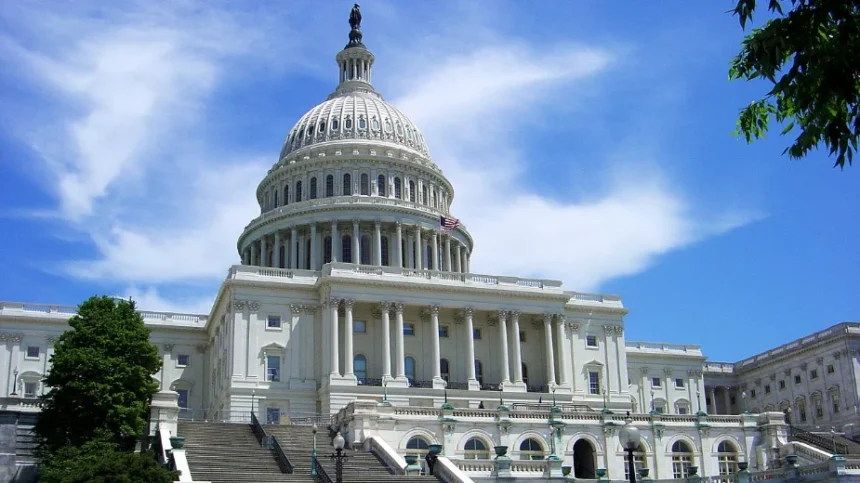The U.S. Senate has approved a major funding bill that could bring an end to the longest government shutdown in American history within the coming days.
The bill passed late Monday night with a 60–40 vote, as nearly all Republicans joined eight Democrats in crossing party lines to support the measure. The agreement will fund the federal government through the end of January.
Next Steps: House Approval and Trump’s Signature
The House of Representatives must now pass the bill before President Donald Trump signs it into law. Earlier on Monday, Trump signaled his willingness to approve the measure, raising hopes for a quick resolution to the shutdown that has paralyzed large portions of the federal system since October.
A Rare Bipartisan Compromise
According to BBC reports, the breakthrough came over the weekend when several Democrats joined Republicans to negotiate a deal that would bring federal workers back to their jobs and restore essential government services.
Republicans hold a 53–47 majority in the Senate and needed at least 60 votes to advance the legislation.
Democratic Senators Dick Durbin, John Fetterman, Catherine Cortez Masto, Maggie Hassan, Tim Kaine, Jackie Rosen, and Jeanne Shaheen broke ranks with their party to vote in favor of the bill. They were joined by Angus King of Maine, an independent who caucuses with the Democrats.
Only one Republican senator, Rand Paul of Kentucky, voted with the Democratic minority against the measure.
Relief for Federal Workers and Essential Services
The announcement was made in a mostly empty Senate chamber, where the few senators present cheered and applauded as the vote was confirmed.
“We will reopen the government and ensure that federal employees receive the compensation they’ve earned and deserve,” said Senator Susan Collins, a Republican who played a key role in drafting the bill.
Since October, many government services have been suspended, leaving 1.4 million federal employees either on unpaid leave or working without pay.
The shutdown has had wide-ranging consequences across the country, including air travel disruptions and cuts to food assistance programs that affect over 41 million low-income Americans.
Economic Impact and Public Disruption
On Monday alone, more than 2,400 flights across the U.S. were canceled, and at least 9,000 were delayed, according to FlightAware, a real-time flight tracking platform.
Economists warn that the extended shutdown has damaged public confidence, slowed federal operations, and strained millions of American households who rely on government support.
With the Senate’s passage of the bill and Trump’s expected approval, the U.S. could soon move past one of the most disruptive political standoffs in decades — though analysts caution that another funding battle may emerge in early 2026.







